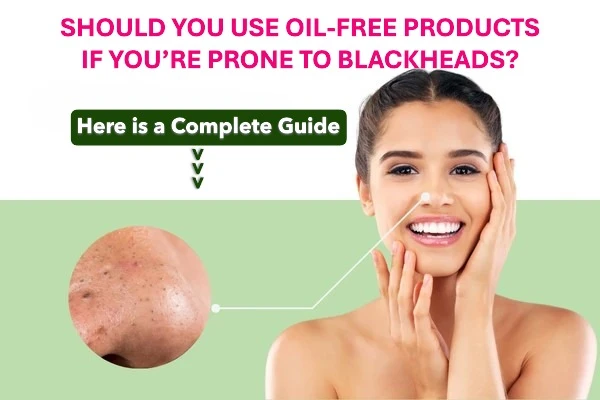Should You Use Oil-Free Products If You’re Prone to Blackheads? Understanding What Really Helps Keep Pores Clear
Should You Use Oil-Free Products If You’re Prone to Blackheads? Understanding What Really Helps Keep Pores Clear
Blackheads are among the most common skin concerns, especially for people with oily or combination skin. Many skincare and makeup products now proudly label themselves as “oil-free,” often marketing directly to those who struggle with blackheads and clogged pores. But is choosing oil-free really necessary if you’re prone to blackheads? Let’s explore how blackheads form, what role oils play, and what truly matters in keeping your pores clear.
How Blackheads Form
Blackheads, also known as open comedones, form when dead skin cells and sebum (your skin’s natural oil) accumulate and block a hair follicle or pore. When this clog is exposed to air, it oxidizes and turns dark, creating the familiar appearance of a blackhead.
While oil is part of this process, it’s not the sole cause. Factors like excess sebum production, slow cell turnover, hormonal changes, and even some skincare ingredients can contribute.
Why “Oil-Free” Matters—But Isn’t Everything
Oil-free products are formulated without added oils, which can seem like a smart choice for oily or blackhead-prone skin. Here’s why they can help:
-
Lower chance of pore-clogging: Some oils—especially thicker, heavier ones—can be comedogenic, meaning they may block pores and increase the risk of blackheads.
-
Lighter feel: Oil-free products often feel lighter and less greasy, making them comfortable for daily wear on oily skin.
-
Better control of shine: For those dealing with oily T-zones, oil-free moisturizers or sunscreens help manage excess shine.
However, the term “oil-free” doesn’t always guarantee a product is non-comedogenic. Other ingredients like silicones, butters, or thickening agents might still clog pores if your skin is sensitive to them. Always look for products labeled non-comedogenic, which are specifically tested to avoid blocking pores.
Good Oils vs. Bad Oils
Not all oils are harmful for blackhead-prone skin. In fact, some lightweight, non-comedogenic oils (like squalane, rosehip, or jojoba oil) can hydrate and balance the skin without increasing breakouts. When the skin becomes overly dry—often due to harsh cleansers or skipping moisturizer—it can actually trigger more sebum production, leading to even more blackheads.
The key is avoiding heavy or known comedogenic oils like coconut oil or cocoa butter if your skin reacts poorly, rather than avoiding all oils entirely.
What Really Helps Prevent Blackheads
Beyond choosing oil-free or non-comedogenic products, a few skincare habits make the biggest difference:
-
Gentle daily cleansing: Use a mild cleanser morning and night to remove excess oil and impurities.
-
Exfoliation: Incorporate chemical exfoliants like salicylic acid (a BHA) to help dissolve oil inside pores and prevent clogs.
-
Balanced hydration: Even oily skin needs moisture. Lightweight, oil-free, or gel-based moisturizers help maintain skin barrier health.
-
Consistent sun protection: Sun damage can thicken skin and worsen clogged pores over time, so daily SPF is essential.
Bottom Line
If you’re prone to blackheads, oil-free and non-comedogenic products can definitely help reduce the risk of clogged pores, but the label alone isn’t the complete answer. A balanced routine that gently cleanses, exfoliates, and hydrates your skin, combined with smart product choices, is the most effective way to keep pores clear and skin healthy.
Rather than fearing all oils, focus on understanding your skin type and choosing products that truly support clearer, balanced skin.

Related Blog
What Causes Oily Skin and Can It Be Managed Naturally? Exploring Root Causes and Gentle Solutions
Aug 2, 2025 by Admin
General
What Are the Signs That You Have Sensitive Skin? Key Symptoms to Help You Identify This Delicate Skin Type
Aug 1, 2025 by Admin
General